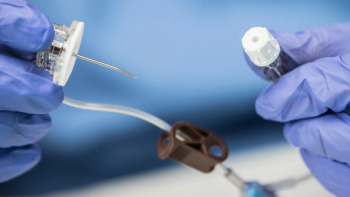
Performing frequent assessments and assisting with hygiene is vital to preserving and improving quality of life.

Performing frequent assessments and assisting with hygiene is vital to preserving and improving quality of life.

A veteran nurse offers practical advice for addressing sexual health with oncology patients.

Preventing central line–associated bloodstream infections is a top priority for healthcare practitioners, and following basic safety protocols, such as handwashing and line flushing, is essential to the effort.

Increasing awareness of the dangers of sun exposure involves not only patient and caregiver education, but also nurses setting a positive example themselves.

Some cancer treatments, as well as aging, increase the risk of patient falls. Making these basic steps a routine part of patient care can go a long way in preventing this often life-limiting complication.

Many anticancer therapies increase the risk of oral mucositis, leading to dose reduction or treatment delays. There are interventions that can help, and more are under study.

Patients new to ostomy often rely on nurses to help them select the appropriate supplies and assist with application.

An often over-looked side effect with opioids is opioid-induced constipation. Through communication and collaboration, oncology nurses can help to prevent this adverse event, and manage and correct it when it does occur.

An oncology nurse's overview of wound care.

An oncology nurse's overview of inflammatory breast cancer.

An oncology nurse's overview of immunotherapy.

Published: September 20th 2016 | Updated:

Published: October 12th 2016 | Updated:

Published: December 1st 2016 | Updated:

Published: February 16th 2017 | Updated:

Published: March 15th 2017 | Updated:

Published: April 12th 2017 | Updated: